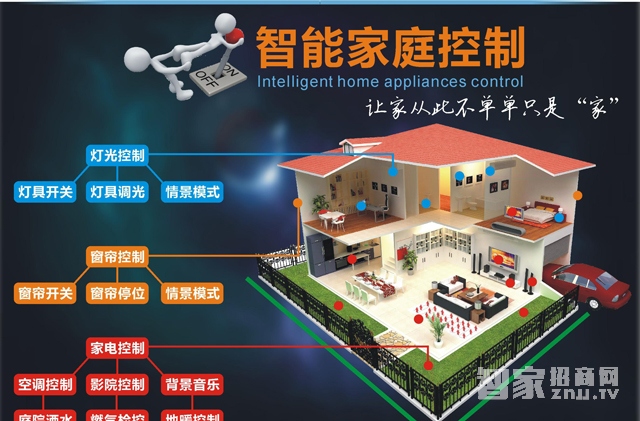Through the home network, a smart home system enables various devices within the system to communicate with each other, creating an intelligent, comfortable, and convenient living environment for users. Compared to traditional homes, smart home systems typically offer these four key advantages, which are also the reasons why many consumers are eager to invest in them.
Four Key Benefits of Smart Home Systems
1. Flexibility in Operation
Operational flexibility means having diverse ways to manage your smart home. Users can control their devices via touchscreens, smart remotes, or even smartphones and tablets. Additionally, smart home systems allow real-time, comprehensive control over any device, both inside and outside the house, from anywhere in the world.
For instance, home lighting can be customized according to individual preferences. Pre-set modes like "Home Mode" can automatically turn on lights, open curtains, and activate appliances as soon as the door is unlocked. This level of customization enhances comfort and convenience significantly.
2. Seamless Interaction Between Devices
Smart home systems connect various intelligent devices through the home network, allowing them to work together harmoniously. By using communication protocols, information sharing, and instant messaging, these systems can meet users' ideal expectations. For example, with the help of the ZigBee protocol, household appliances can receive energy price signals from home energy management systems and send feedback to the main metering circuit to optimize energy consumption.

3. Enhanced Functionality
The smart home system caters to the needs of different user types, varying levels, and diverse styles. The software system of the smart home control hub can be updated online, ensuring continuous improvement in functionality. Beyond basic features like smart lighting, security, and remote monitoring, these systems can also offer advanced services such as elder care assistance, emergency call systems, automatic irrigation, pet care, and more.
4. High Reliability
Utilizing communication technologies like RF, ZigBee, WiFi, and bus systems, the smart home system sends commands to manage various devices in the house centrally. The intelligent center controls the host modules, and the dual-network design ensures high reliability. Even when internet speeds fluctuate, the system remains stable and operational.
These four advantages of the smart home system enable users to fully experience the transformative power of technology in daily life, making it more efficient and appealing to many modern households.
Related Reading
Article: How Can Smart Homes Generate Revenue?
Recommended: Smart Home Retail, Smart Home Chips, Bluetooth Smart Home
4.4V High Voltage Battery,4.4V Battery
Shenzhen Jentc Technology Co., LTD , https://www.phenyee.com